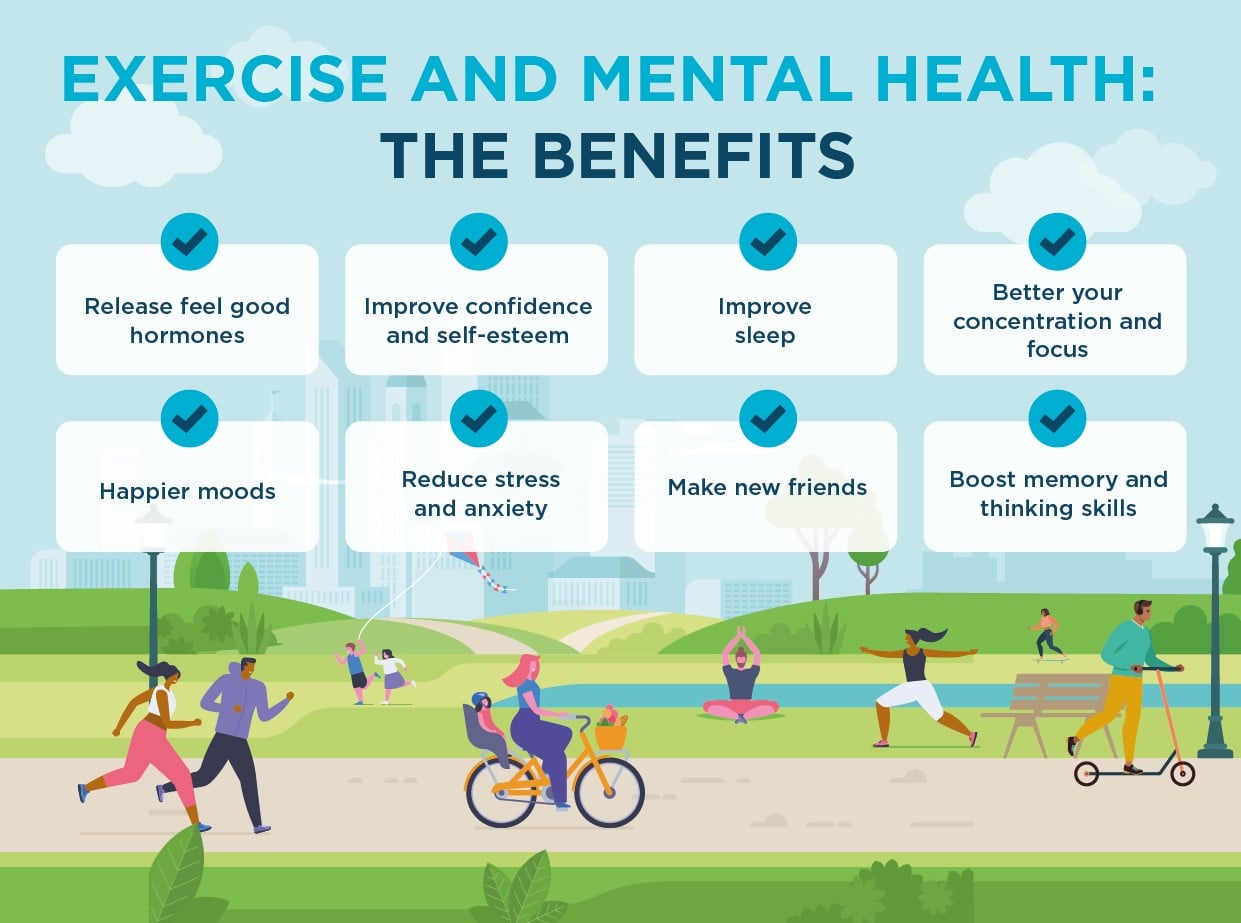Hello runner friends!
Welcome back to the Bass Pro Fitness Series
MIDWEEK M😊TIVATI😊N blog!
With that being said, many people don't know that January is also Mental Health Awareness Month and that running checks off many of the blocks on the National Institute of Health's Emotional Wellness Checklist - such as developing healthy physical habits and taking time for yourself each day to build resilience, exercising regularly and building a social support network to reduce stress, and exercising regularly to get quality sleep among many other benefits. So, as you can guess then, adding to your reasons of "why" it's important to get out the door regularly even when it's cold is "to strengthen my mental health" will benefit you in more ways than one. Additionally, when you run, endorphins and serotonin are released in your body -- chemicals that may improve mood. Studies show regular running (especially outside as opposed to inside) at a moderate or vigorous pace can improve your mental happiness and even your memory and ability to learn.
*On a side note, I would highly urge you to download the Wellness Checklist and do what you can to check off all the boxes. This is a great tool from the NIH.
In fact, in a 2023 study titled, "Antidepressants or running therapy: Comparing effects on mental and physical health in patients with depression and anxiety disorders," the conclusion upon studying 141 participants was this: While the interventions had comparable effects on mental health, running therapy outperformed antidepressants on physical health, due to both larger improvements in the running therapy group as well as larger deterioration in the antidepressant group. And improved physical health keeps mental health in check.
More than 50 million American adults experience mental illness, with half of them not receiving any treatment. As we mentioned, running can be part of your plan because it helps trigger the release of endorphins, dopamine, and serotonin. These feel-good chemicals are often depleted by mental disorders.
“We lose nerve cells, and exercise helps repopulate them and make them tougher, make them stronger so they can withstand the stresses of everyday life,” said John Ratey, an associate clinical professor of psychiatry at Harvard Medical School.
“Now, I would always encourage people to seek medical advice from a medical professional, it’s really important to make sure that you’re targeting your mental illness from all avenues,” said Lennie Waite, a certified mental performance consultant and Olympian. “But running is a great supplement to whatever else you’re doing to benefit your mental health.”
Running can support a range of mental disorders, including anxiety, the most common mental illness in the U.S., and depression, the leading disability in ages 15-44. But the benefits don’t stop there. Post-traumatic stress disorder is another one, which Runner’s World covered in detail in this article. And runners have been using the sport to manage other mental health conditions as well, including bipolar disorder, ADHD, the risk of dementia, or, for example, OCD.
In fact, in a 2023 study titled, "Antidepressants or running therapy: Comparing effects on mental and physical health in patients with depression and anxiety disorders," the conclusion upon studying 141 participants was this: While the interventions had comparable effects on mental health, running therapy outperformed antidepressants on physical health, due to both larger improvements in the running therapy group as well as larger deterioration in the antidepressant group. And improved physical health keeps mental health in check.
On that note, in an article published by Runner's World in 2024 on the benefits of running for your mental health, the author said "Running Is a Great Tool for Treating Mental Disorders," before going on to say the following:
More than 50 million American adults experience mental illness, with half of them not receiving any treatment. As we mentioned, running can be part of your plan because it helps trigger the release of endorphins, dopamine, and serotonin. These feel-good chemicals are often depleted by mental disorders.
“We lose nerve cells, and exercise helps repopulate them and make them tougher, make them stronger so they can withstand the stresses of everyday life,” said John Ratey, an associate clinical professor of psychiatry at Harvard Medical School.
Antidepressant drugs are based on helping fire neurotransmitters in your brain and increase their concentration as soon as you start taking them, Ratey said. But as explained above, the same can be achieved by incorporating running into your routine. In a 2023 study published by the Journal of Affective Disorders, more than 100 people with depression or anxiety were offered the option to take antidepressants or join a running program for 16 weeks. The study concluded that running worked just as well as the medication.
“Now, I would always encourage people to seek medical advice from a medical professional, it’s really important to make sure that you’re targeting your mental illness from all avenues,” said Lennie Waite, a certified mental performance consultant and Olympian. “But running is a great supplement to whatever else you’re doing to benefit your mental health.”
Running can support a range of mental disorders, including anxiety, the most common mental illness in the U.S., and depression, the leading disability in ages 15-44. But the benefits don’t stop there. Post-traumatic stress disorder is another one, which Runner’s World covered in detail in this article. And runners have been using the sport to manage other mental health conditions as well, including bipolar disorder, ADHD, the risk of dementia, or, for example, OCD.
And, there you have it friends. If improved mental health isn't one of your "why" reasons you make the choice to remain consistent this winter, it really should be. After all, mental health has a direct bearing on your physical health, spiritual health, emotional health, and social health. Which means improving one naturally improves the others. So, in the spirit of January, use this month to assess additional ways you can improve your mental health, making consistent running one of your priorities. You'll be so glad you did! Happy Running!





No comments:
Post a Comment